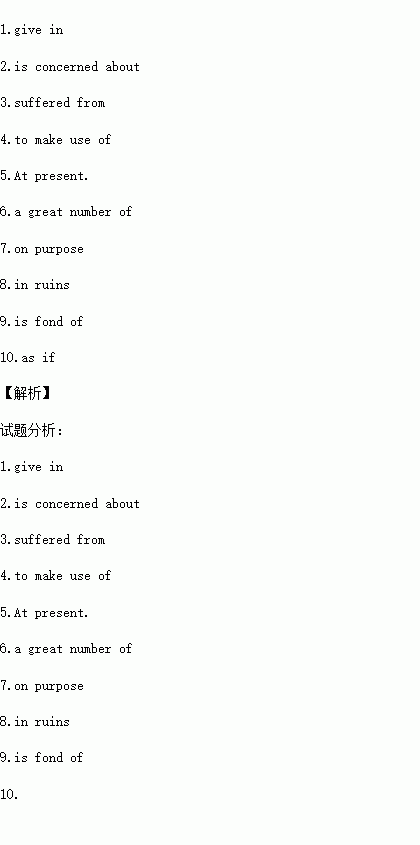题目内容
运用所给短语的正确形式填空.

1.You must ___________your examination papers right away.
2.Tom___________ his health, which is why he exercises everyday.
3.The small town nearby the seaside_____ great loss____ the terrible Typhoon.
4.This instruction shows how________ the short holiday to help the homeless people.
5._________, no one but Lucy can speak fluent English.
6.The German Nazis caught and killed___________ Jewish during the World War II.
7.If an employee lets out the secrets of the company______, he will be fired.
8.After the disaster, the city was totally_______.
9. Little Ann____________ everything to do with nature.
10.It seemed_____ the world was at an end.
练习册系列答案
 星级口算天天练系列答案
星级口算天天练系列答案 芒果教辅达标测试卷系列答案
芒果教辅达标测试卷系列答案
相关题目

